Another eyewash?
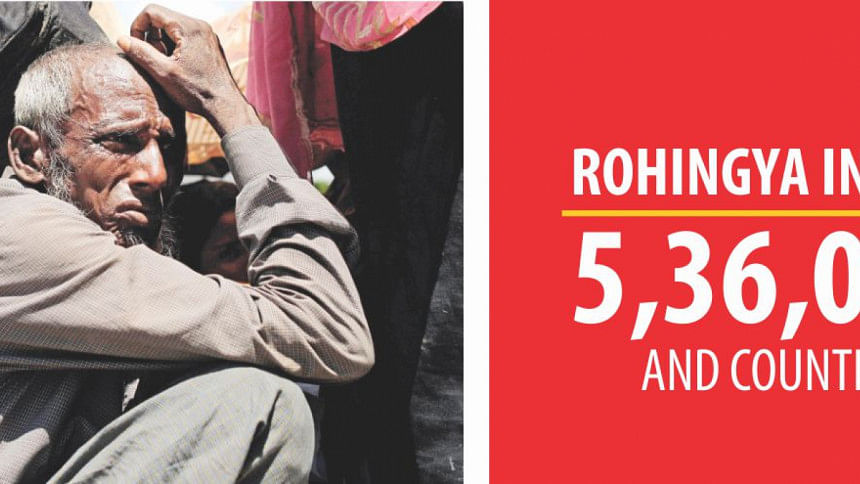
Myanmar's military has launched an internal probe into the conduct of soldiers during an offensive that has sent more than half a million Rohingyas fleeing to Bangladesh, many saying they witnessed killings, rape and arson by troops.
A committee led by Lieutenant-General Aye Win has begun an investigation into the behaviour of military personnel, the office of the commander in chief said yesterday, insisting the operation was justified under Buddhist-majority Myanmar's constitution.
According to a statement posted on Senior General Min Aung Hlaing's Facebook page, the panel will ask, "Did they follow the military code of conduct? Did they exactly follow the command during the operation? After that [the committee] will release full information."
Myanmar is refusing entry to a UN panel that was tasked with investigating allegations of abuses after a smaller offensive was launched in October 2016, reports Reuters.
But domestic investigations, including a previous internal military probe, have largely dismissed refugees' claims of abuses committed during the so-called "clearance operations".
Refugees continue to arrive in Bangladesh fleeing the military crackdown in Rakhine, even though Myanmar insists the operation ceased on September 5. Aid agencies estimate that 5,36,000 Rohingyas have crossed over into Cox's Bazar.
According to Myanmar, the crackdown began on August 25 in response to Rohingya insurgent attacks on security posts.
But a UN report on Wednesday said, "The brutal attacks against the Rohingyas in northern Rakhine State have been well-organised, coordinated and systematic, with the intent of not only driving the population out of Myanmar but preventing them from returning to their homes."
Rohingya survivors have told the UN the security forces began attacking Rohingya townships and villages weeks earlier, in early August.
Meanwhile, the European Union is reportedly set to cut ties with Myanmar over the alleged ethnic cleansing of Rohingyas. The bloc is also considering the use of sanctions if there is no improvement in the crisis.
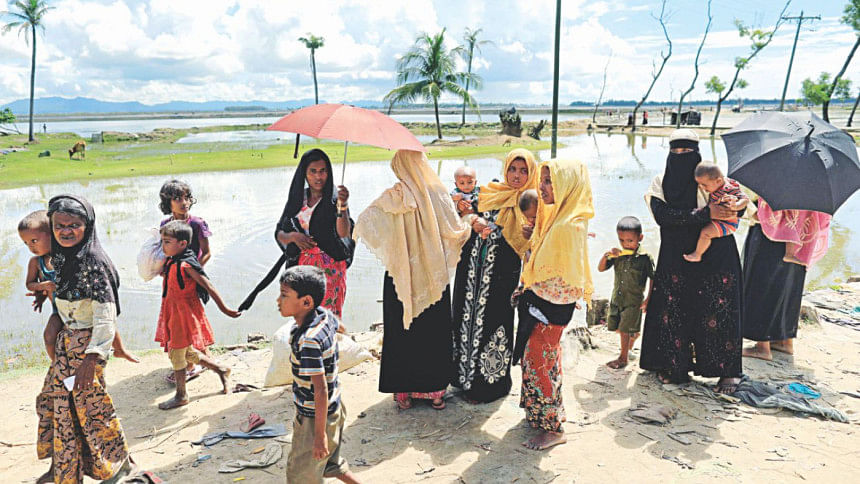
An agreement, which has been approved by EU ambassadors, has called for the violence to come to an end. However, it still needs to be signed off by the foreign ministers of the member countries, reports the UK-based The Independent.
"In the light of the disproportionate use of force carried out by the security forces, the EU and its member states will suspend invitations to the commander-in-chief of the Myanmar/Burma armed forces and senior military officers and review all practical defence cooperation," according to a draft agreement prepared for a meeting of foreign ministers on Monday.
"The Council will adopt conclusions on Myanmar, in the light of the humanitarian and human rights situation in Rakhine State," reads the agenda.
The EU presently does not allow the export of arms and equipment that will be used for "internal repression" and warned it would consider "additional measures" if the crisis continued.
Apart from the EU, the United States is also considering targeted sanctions against Myanmar military leaders over the offensive against the Rohingya populations.
MUSLIMS DEPARTING CALMLY!
The report on the Myanmar army launching probe comes at a time when its military chief Min Aung Hlaing told US Ambassador Scot Marciel that Rohingyas are not native to that country.
Instead of addressing the accusations of abuses by his army men, he rather said media was complicit in exaggerating the number of refugees fleeing.
Aung Hlaing, referring to Rohingya by the term "Bengali", which they regard as derogatory, said British colonialists were responsible for the problem.
"The Bengalis were not taken into the country by Myanmar, but by the colonialists," he told Marciel, according to the account of the meeting posted on Thursday.
"They are not the natives."
In comments to Japan's ambassador carried in state media yesterday, Aung Hlaing denied ethnic cleansing was taking place on the grounds that photos showed Muslims "departing calmly rather than fleeing in terror".
While Bangladesh and UN agencies were tackling to cope with the influx, a Myanmar minister, at a meeting in Dhaka on October 2, offered to take back Rohingyas sheltered in Bangladesh.
Senior officials at Bangladesh foreign ministry and former diplomats saw it as a positive development but said there is no reason to trust Myanmar as the country may have an intention to defuse the global outcry over the persecution of Rohingyas.
"The Myanmar's move is absolutely eyewash and they have taken this initiative amid international pressure and condemnation," said a high official of the government. "Bangladesh should not fall into the trap laid by Myanmar."
On Tuesday, Bangladesh Foreign Minister AH Mahmood Ali said Myanmar has been unresponsive to Bangladesh's efforts to improve bilateral ties over the last two years.
Myanmar's de facto leader Aung San Suu Kyi in a televised address on Thursday said her government was holding talks with Bangladesh on the return of "those who are now in Bangladesh."
But she did not use the word "Rohingya" in her speech, although she referred to several other ethnic minorities by name.
UNHCR COLLECTING DATA
UNHCR has been working with the government in Bangladesh in the first stage of a new "family counting" exercise to collect data on the refugees and their needs.
Led by Bangladesh's Refugee Relief and Repatriation Commission (RRRC), the exercise has so far counted 17,855 families -- more than 70,000 individuals. At this initial stage, it is being carried out in the Balukhali extension and Kutupalong extension camps, he said.
On new arrivals from Bangladesh, the UNHCR spokesperson said some several hundred people are reported to have arrived overnight Thursday night and so far yesterday by boat.
Tomorrow, Deputy Prime Minister of Malaysia Ahmad Zahid Hamidi will arrive in Bangladesh on a two-day visit to assess the situation of forcible displaced Myanmar nationals.
Zahid is expected to call on Prime Minister Sheikh Hasina and travel to Cox's Bazar.

 For all latest news, follow The Daily Star's Google News channel.
For all latest news, follow The Daily Star's Google News channel. 

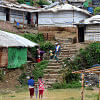
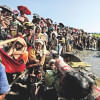


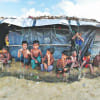

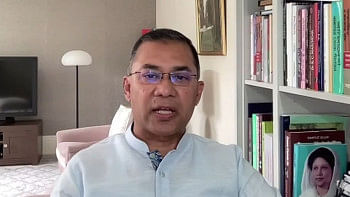
Comments